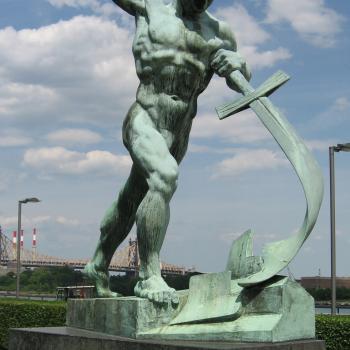This year’s aggressive invasion of Ukraine by neighboring Russia has resulted in the biggest war in Europe since WWII. It has been going on for just over a hundred days, and it is having economic and commodity repercussions throughout much of the world. The foremost commodity that Russia exports is fossil fuels upon which Europe depends. But Europe, Canada, and the U.S., as members of NATO, have opposed Russia’s aggression in Ukraine. Thus, a foreboding energy crisis appears to be on the near horizon for especially eastern Europe.
Russia is the world’s second largest exporter of oil and natural gas, with Saudi Arabia as first. Europe does not have much oil and natural gas except offshore in the west and north. Thus, much of Europe depends heavily on Russian imports of oil and gas to meet its energy needs, such as heating homes and fueling industry. This is especially true of Germany, which is Europe’s foremost economy. Germany has been getting half of its oil from Russia and nearly half of its natural gas.
Russia’s autocratic President Vladimir Putin ordered the attack on Ukraine for multiple reasons. One was for it to expand Russian hegemony. Another was to weaken NATO and the EU. Putin thought the West would collapse. But the opposite has happened. As a member of NATO, the U.S. has led in opposing this Russian aggression and aiding Ukraine to thwart it. But all of the EU and NATO have united in opposing this war, and by different means.
The EU and NATO are supplying Ukraine with much-needed military equipment. But they also have imposed stringent economic sanctions against Russia. The result has been that NATO expanded last week by accepting the membership applications of Sweden and Finland, which had remained neutral through the Cold War until now. Thus, the EU and NATO have never been stronger in their efforts to protect its members and strengthen their democracies. Ukraine is not a member of either NATO or the EU; but Ukraine has been applying for membership in both for nearly three decades.
Last week, the EU passed legislation in which all of its members will no longer receive petroleum from Russia by the end of this year. And they have a plan to reduce Russian natural gas imports as well. But Russia also threatens to cut off these supplies.
Thus, several European governments and their energy corporations are scrambling to find substitutes for vanishing Russian imports of fossil fuels. Due to so-called “climate change,” Europe is a leader in transitioning from oil and gas to renewable energy, such as wind and solar, but that will take decades to be fully achieved.
Due to this coming energy crunch, Germany is preparing for this year’s cold winter by rationing natural gas and electricity. Deutsche Bank recently predicted an “imminent German recession on the back of energy rationing.” In the past decade, many European nations have been decreasing their use of oil and increasing their use of natural gas since using gas produces about half the emissions oil produces.
Now back to my dream. I’ve never told anyone about this dream I once had about an energy crisis. I don’t recall when I had it. I think it was in the 1980s. It may have happened because the oil embargo of 1973 had caused me to thereafter become interested in energy. I eventually recorded this dream briefly in a computer file. So, this post is the first time I’ve revealed this dream. But I first need to provide a little background about my Christian identity, since I think this dream came from God.
I’ve been an evangelical Christian in the independent (non-denominational) Bible church movement since college, thus all of my adult life. People didn’t used to know about evangelicals. But this movement has grown so much in recent decades that it now comprises about one-fourth of all professing Christians.
Nevertheless, the term “evangelical” is not easy to define. The media generally defines evangelicalism as Christians who have a focus on a personal, “born-again” experience involving faith in Jesus as the Christ, Savior, and Lord. This definition certainly includes Pentecostals/Charismatics.
However, there are some sharp differences between Pentecostals/Charismatics and all other evangelicals. The main one is that Pentecostals emphasize outward signs as a manifestation of God’s Holy Spirit–such as speaking in tongues, miracles, healings, prophecies, and dreams–whereas other evangelicals do not have this emphasis. Furthermore, evangelicals of the independent Bible church movement generally discourage this activity. Some of them think God discontinued these signs after the first century (1 Corinthians 13.8-10). I don’t subscribe to that view; yet I don’t think such activity happens genuinely as much as Pentecostals do.
So, throughout my life I have had only two dreams that I have thought came from God. The first one was my dream about an energy crisis. I think I had this dream during my mid-forties. Here it is, in two paragraphs, as I typed it on my computer many years ago:
“I had an unusual and distinct dream that I thought came from God. I dreamed that many people were lying asleep at night on low bedding in a large room. They were all lined up close to each other, and their bedding seemed to be temporarily placed. They surrounded a rectangular heating facility that appeared to be fueled by some material. The legs of these people were pointing at the heating facility, so that their feet were close to it and their heads were farthest from it. Thus, there were two rows of people on either side of the facility. I saw through windows of the building that there was snow on the ground, indicating that it was cold outside.
“When I awoke from this dream, I had a strong impression that these people were sleeping together in such close quarters around this heating facility to stay warm and conserve energy. As I thought more about this dream, I wondered if a severe energy crisis could ever strike the U.S., causing its residents living in the northern states to experience a shortage of heating oil on which they depend during cold winters. And I thought of other countries having this problem as well. A shortage of heating oil or gas would suggest the price of it had skyrocketed. I wondered about the possibility of people freezing to death in these northern climates during the wintertime if they couldn’t afford to heat their homes.”














